
This article was updated on June 22nd, 2023
As dogs become older, many of them unfortunately will develop cancer. Male dogs that are not neutered can be at a unique risk of developing testicular cancer. This is not a frequent problem in the United States as it is common practice to spay and neuter our pets. Ultimately, this decision is personal and owner dependent. Any intact male dog can develop testicular cancer which is caused by the uncontrolled replication of cells within the testes.
What testicular cancer looks like in dogs [with pictures]
Testicular cancer can be hard to recognize in dogs if you are not familiar with the normal appearance of the testicular anatomy. Long-haired dogs offer a different challenge as their testicles are not easily visible. Identification often is made by palpation or feeling the testicles for symmetry. Dogs with testicular tumors have testicles that feel irregular or lumpy. A discrete mass may be able to be palpated.
Normal canine testicles
Below are a few pictures of normal canine testicles:
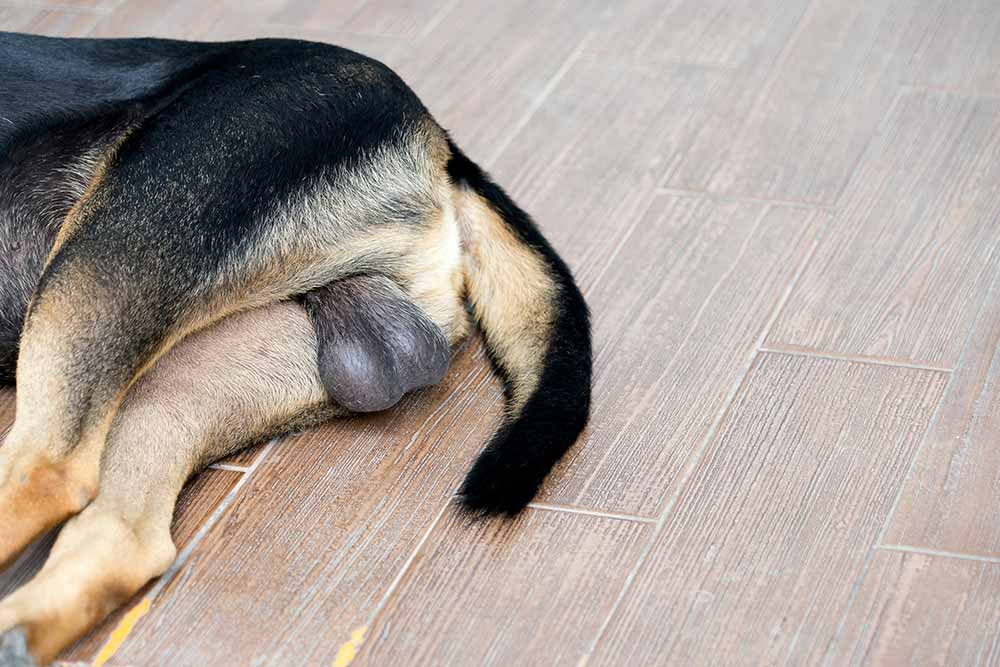
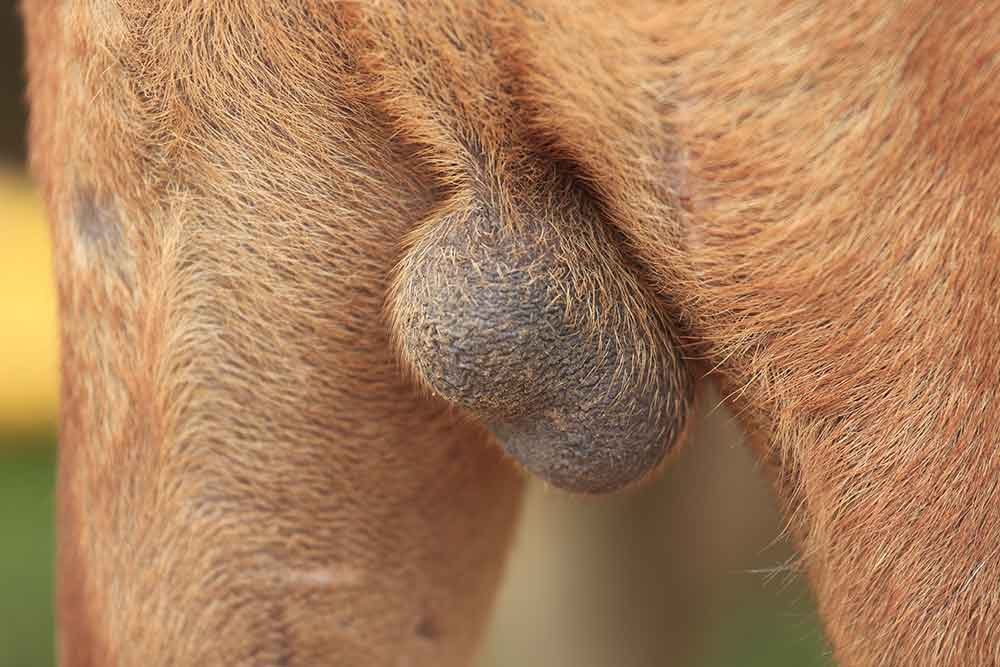
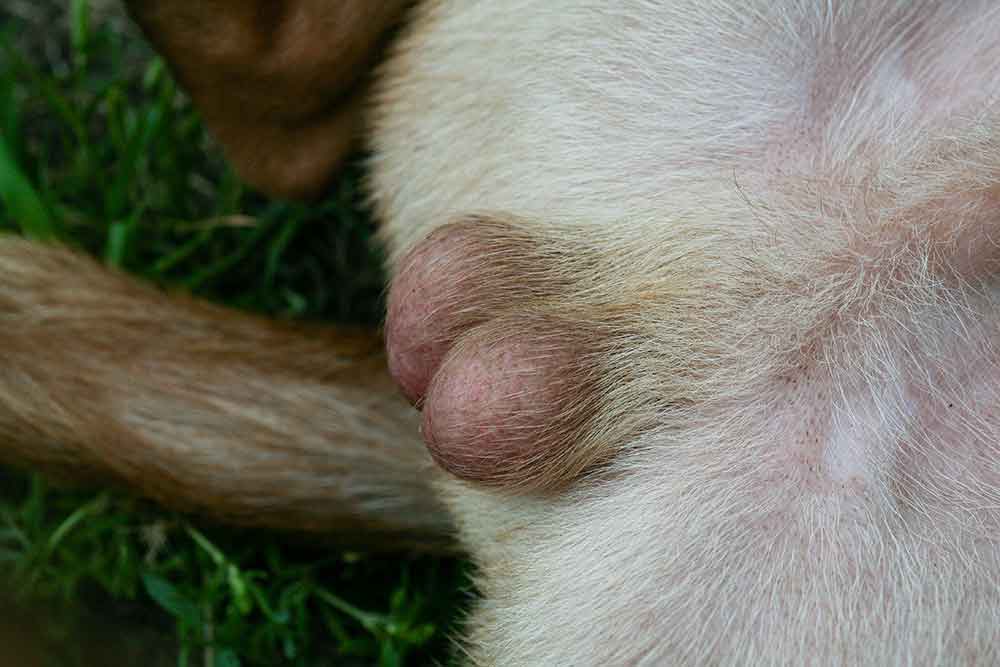
Now that you have an idea of what normal canine testicles look like, attached are photos of dogs with testicular tumors.
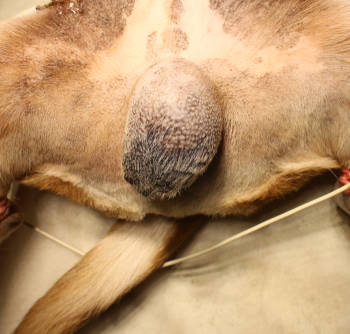
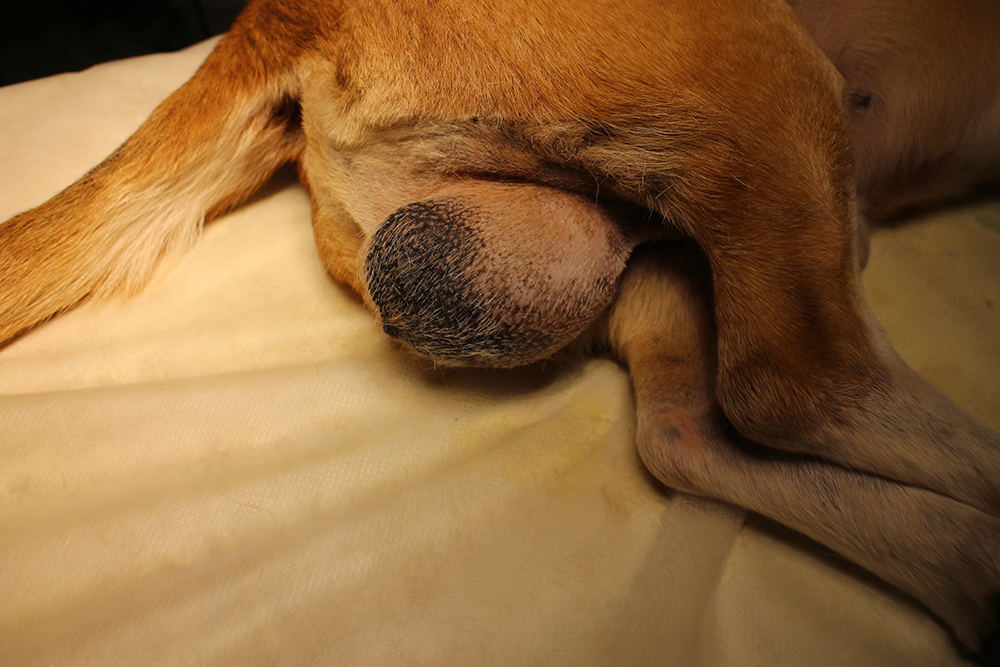
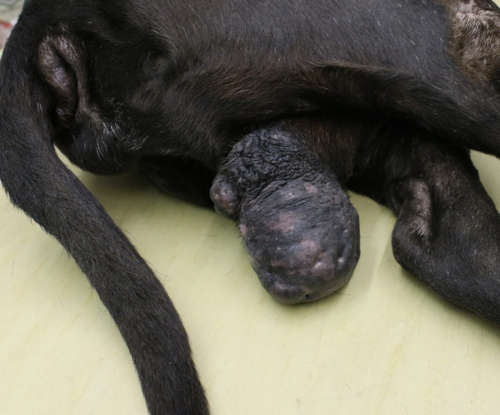
Or view this picture from Urban Animal Veterinary.
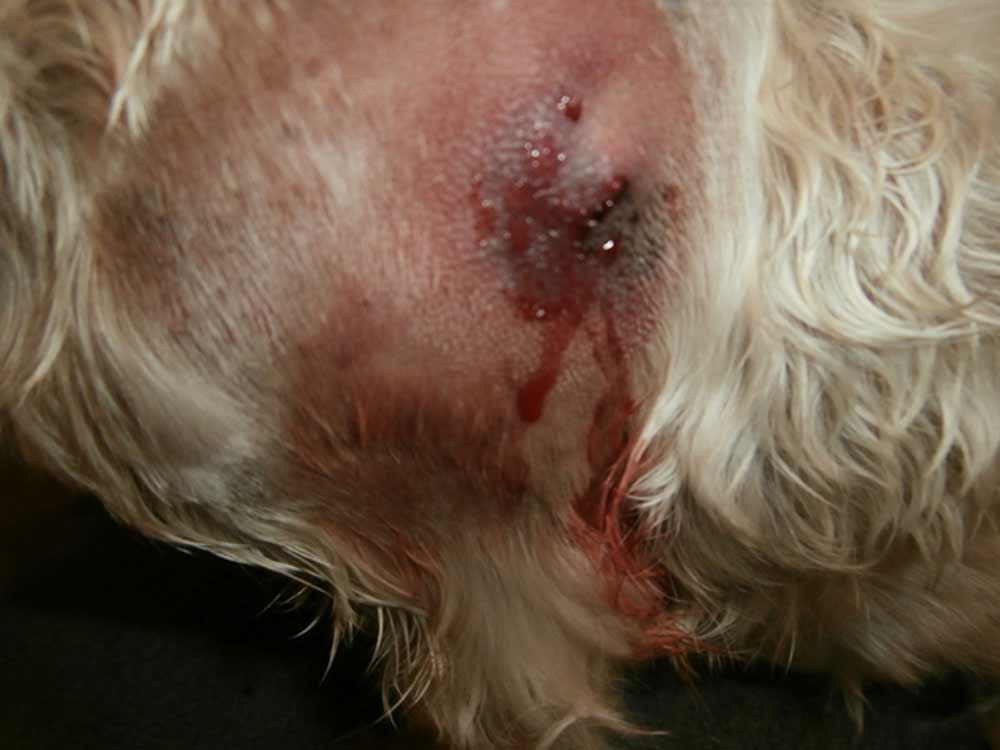
Dogs that are cryptorchid are more likely to develop cancer in the testicle that remains in the abdomen. These tumors may appear as a lump or swelling on your dog’s abdomen or inguinal region.
Signs that your dog has a testicular tumor
Most dogs with testicular tumors often do not have any clinical signs. These tumors are found incidentally during a routine physical examination. Dogs may have generalized enlargement of their scrotum or one testicle will feel enlarged and irregular.
Some dogs will show clinical signs of excessive estrogen formation, especially with Sertoli cell tumors. Dogs with these tumors can have enlarged mammary glands and nipples, hair loss, and anemia.
If the tumor is metastatic, dogs may develop clinical signs dependent on the location where cancer has spread. Some dogs will have swollen lymph nodes or develop tumors in the liver or lungs. Many of these dogs will feel systemically unwell and have poor appetite and weight loss. Metastatic disease of the lungs may impair normal breathing and dogs can develop labored breathing, coughing, or respiratory distress.
Is it a testicular tumor or is it something else?
Swelling of the testicles is always concerning but may be a clinical sign of another disease. Common diseases of the testicles include testicular torsion or infections.
1. Testicular torsions occur when the testicle twists on itself. This condition is very painful, and dogs will feel unwell. The testicle will become swollen and painful to the touch. Dogs with this condition may not want to walk. This can happen spontaneously, or some dogs may be predisposed if there is a tumor in the affected testicle. This condition is a surgical emergency and dogs must be taken to a veterinarian ASAP. This is a dog with significant swelling and bruising secondary to testicular torsion: See picture on VeterianKey.com.
2. Infection or inflammation of the testicles can also mimic testicular tumors. Dogs will have an acutely swollen testicle that is painful, hot to the touch, and will sometimes have systemic signs (i.e., fever). This is a photo of a dog with an infection of the testicle caused by brucellosis. See figure 1 on this page.
When to call your veterinarian
If you are concerned about an abnormality of your dog’s testicles, you should always contact a veterinarian to set up an appointment. Most testicular cancers are not a medical emergency and an appointment with your primary care veterinarian can be booked in advance.
If your dog is showing evidence of feeling unwell, an urgent appointment should be made. Testicular infections or torsions are considered emergent, and you should either contact your veterinarian ASAP or take your dog to be evaluated at an emergency facility.
Veterinarian treatment, costs & recovery
If your dog is suspected to have testicular cancer, your veterinarian will perform a close examination. Palpation of the testicles may reveal asymmetry or a mass effect. Your veterinarian will discuss the next steps which may include chest x-rays to ensure the cancer has not spread and bloodwork for pre-anesthetic screening.
Treatment of choice is by surgical removal of the affected testicle. This is performed similarly to routine neutering, but the scrotal skin is also removed in the event tumor cells are present. Your veterinarian will send the testicle to a pathologist for a definitive diagnosis of the type of cancer they may have. This will guide any treatment that may be necessary moving forward.
If there is evidence of metastatic disease, your dog should have a consultation with a veterinary oncologist. Chemotherapy may be recommended.
Costs related to surgery for testicular cancer will generally range from $1500-4000. If chemotherapy is indicated the costs for this may range between $3000-6000 depending on the type of treatment needed. It is important to remember that costs vary by clinic. You should always ask for an estimate in advance.
Care after surgery is similar to neuter aftercare. Your dog will need to be exercise restricted and wear a cone for a minimum of 10-14 days while the incision heals.
The only way to prevent testicular cancer is to have your dog neutered.
This ideally should be performed at a younger age before most testicular cancers will develop. Any cryptorchid dog should be neutered as they are at the highest risk for cancer. Cryptorchidism is also hereditary, and these dogs are not ideal breeding specimens.
Frequently asked questions
How can you tell if your dog has testicular cancer?
Dogs with testicular cancer may not have any clinical signs. The finding is usually incidental when your veterinarian performs an examination. Some tumors can produce estrogen and clinical signs of hyperestrogenemia. These include hair loss, mammary gland development, and anemia.
What are the chances of a dog getting testicular cancer?
Up to 27% of unneutered male dogs will develop testicular tumors.
How long can a dog live with testicular cancer?
Given the low rate of metastatic disease with testicular tumors (10-20%), many dogs can live a normal life span. Dogs without metastatic disease can be cured with surgery alone. Dogs with metastatic disease have a poorer prognosis.
What’s the average age of dogs diagnosed with testicular cancer?
Most dogs diagnosed with testicular tumors are older than 10 years of age. Cryptorchid dogs generally develop cancer at younger ages.
What are the types of testicular cancer in dogs?
The most common types of testicular cancer in dogs include Sertoli Cell Tumors, Seminomas, and Interstitial cell tumors. Other types of cancer can develop but are extremely rare.
Why does testicular cancer develop in dogs?
It is unclear why these cancers develop in dogs, but animals that are cryptorchid (only have one descended testicle or neither testicle is descended) are at a heightened risk of cancer. Older dogs are more at risk for developing testicular cancer than younger dogs.
What breeds of dogs are at risk for testicular cancer?
Any male dog can develop testicular cancer, but these breeds are at increased risk:
- Boxer
- German Shepherd
- Afghan Hound
- Weimaraner
- Shetland Sheepdog
- Collie
- Maltese
Disclaimer: This website's content is not a substitute for veterinary care. Always consult with your veterinarian for healthcare decisions. Read More.

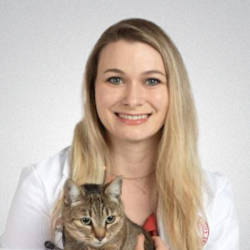
Be the first to comment